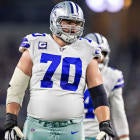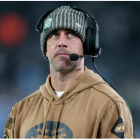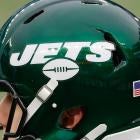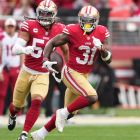I had very low expectations for the Cincinnati Bengals at the trade deadline, after weeks of conversations with increasingly puzzled and exacerbated general managers who were attempting to coax them into parting with some veteran players. And they managed to fall woefully short of even those.
The winless team that could have dominated the 2019 deadline and used it as a badly-needed springboard to an obvious rebuild, instead did absolutely nothing to address its litany of needs besides benching the very player who should have been a vital cog in the roster overhaul it is trying to pretend isn't looming. Rather than make any of the half dozen of no-brainer trades screaming to be executed, the Bengals instead chose Tuesday to bench their $16M-a-year quarterback. They made an uncomfortable transition that clearly connotes that the organization must start retooling around a young QB (whether Ryan Finley or via an upcoming top-five draft pick), and then made no pretense of acknowledging the retooling part.
Instead, they sat out the deadline, despite being the team with the most coveted assets, by far, and the most to gain, by far, and, at 0-8 and already playing to an empty stadium, nothing to lose. They weren't interested. No reason to even try to make a deal. Heck, some key members of the Brown family were on vacation in Switzerland (primary owner Mike Brown himself was back in Cincinnati) as calls were made around the league on the last day to make deals this year.
The trade deadline came and went, but who won and who lost? John Breech, Ryan Wilson and Sean Wagner-McGough joined Will Brinson on the Pick Six Podcast to break it all down. Listen below and be sure to subscribe here for daily NFL goodness fired into your eardrums.
It was clear to other teams for weeks that Mike Brown didn't want to seriously consider trading A.J. Green or Geno Atkins or Carlos Dunlap or Tyler Eifert or Dre Kirkpatrick under any circumstances. And that now includes even one in which they sat down the second leading passer in franchise history in the prime of his career, one tied with should-be Hall of Famer Ken Anderson for most TD passes ever as a Bengal (197), all so they could get a look-see at the 104th overall pick. Dalton wasn't the future, for sure, but he also wasn't the problem. And the Bengals have got problems on problems on problems.
Even still, the Bengals seemed to revel in their trade disinterest.
I'll never understand this stubborn approach, and count me with the vast majority of front offices in the NFL who were befuddled as the Bengals opted to stand pat at 0-8, without signs of life on either side of the ball and staring at the bleakest of short-term prospects. They couldn't even peddle out-of-favor veteran tackle Cordy Glenn off on someone for a pick.
Nothing.
But make no mistake, this team is right there with the Dolphins and Skins as the worst in football, short on hope, and now the notoriously-frugal, small-market team is going to pay Dalton, far and away its highest-paid player, $8M to hold a clipboard for the rest of the season, yet was incredulous about moving millions of more in salary of players who won't be there whenever the team is good again to get much-needed draft picks? Huh?
Waiting too long
For as much as I applaud and understand looking at Finley in 2019, and would have done the same, to not try to maximize future assets at the same time and to not sit Dalton soon enough to actually find out what the QB could get you in terms of picks and/or players before the deadline strains explanation. It's almost as if they don't want to accept that the trade deadline is in fact an actual, meaningful date on the NFL calendar.
Dalton played his best game of the season Sunday, he was not close to the primary reason this outfit has been out-scored by 86 points through half a season, and the glaring needs across the offensive line, and at receiver, and at every level of the failing defense are impossible to miss, week after week. The idea that Finley – or whomever they select with possibly the first-overall pick – could quickly transform this into anything close to a competitive team anytime soon is inconceivable. Yet they don't try to amass substantial draft capital now to have a better shot of filing those holes at a time when the next QB will have no shot with this cast around him.
Let's be real, the Bengals are almost never real players for other team's top free agents, and they clearly don't like trades; so they live and die with the draft. That is their only way out of this hole, and instead of embracing the opportunity to dramatically increase their odds of finding more players who can help their new QB in 2020, they did the exact opposite. They should have been auctioning off top talent, burning up the phone lines playing one GM off of the next; instead they were trade obstructionists. They did literally no work to use this period to make their team better.
Consider them conscious objectors.
Check out what a team official told The Athletic – anonymously, of course – as a response to my report from Sunday about the mounting frustration from other GMs about the Bengals' refusal to engage in real trade talks: It's not their job to make other teams better. Yeah, I'm as baffled as you.
What does that even mean? How backwards is that way of thinking? Sounds stubborn, almost spiteful.
Who cares what your declining 32-year-olds do once they don the uniform of the Saints or Patriots or Eagles or Ravens or Colts or any of the many well-run, progressive, aggressive front offices that have been trying to do business with you all month? Why would you even think about that, much less whisper it to the media ahead of the trade deadline?
Because I know this much, these Bengals, as presently constructed, might not think it's their job to make other teams better, but they damn sure make it appear as if it's their calling to make their opponent look better almost every week in 2019 – an imminent W in the standings for their opponents. You want to keep making your AFC North rivals, the Ravens and Steelers and even the Browns, look better every year? Keep up the kind of thinking and asset management that has landed you in this mess.
Sitting out in a seller's market
This was a unique chance, in what has become a seller's market going back to the Raiders trading Khalil Mack over a year ago, with contending teams more willing than ever to part with bundles of top draft picks for talent. I mean, receiver Mohamed Sanu, who the Bengals let walk away for nothing five years ago, just fetched a second-round pick last week. And yet they wouldn't even entertain marketing Green, 32 in July, as a pending unrestricted free agent who hasn't played all season and has been hurt often in recent years, and who they can only keep by franchising (that'd be a big mistake) and who other teams really wanted.
It was negligent not to have sold him off now. I don't want to hear about a possible third-round comp pick in 2021, should he leave in free agency. That ain't helping your rookie head coach or novice QB in 2020. That assumes Green is actually healthy and productive somewhere else next season, too.
All the while, the Bengals' defense is getting gouged with Atkins (32 next season) and Dunlap (31 next season) and Kirkpatrick (31 next season, and currently sidelined with a knee injury) on the field. They need to get younger and better across the roster. Sure, you could still move them at the combine (when Dalton must be dealt, albeit amid a flooded market where returns will be limited). But the heat of the playoff race and the competition at the deadline is very real, and the chance to control them for this stretch run would have brought higher returns today had this been overseen properly.
You don't get the chance back. I can say that with a fan's regret, watching with horror as the Baltimore Orioles kept together an aging and declining roster at least a year too long, blowing the chance to maximize trade returns and then losing or dealing those same players for far less value in the end.
If you were willing to bench Dalton, then you had to have been willing to do it a few weeks sooner and included him in trading festivities.
At least that would have sent a cogent message to the fanbase. It would have set you up to move up or down the draft board in 2020 and 2021 almost any way you choose. It would have given Taylor and the next QB more of a fighting chance to start making some gains. Instead, you've merely delayed hitting rock bottom before you even (eventually) start bouncing up.
As the great Geddy Lee once sang, triumphantly: If you choose not to decide, you still have made a choice. The Bengals dug in their heels well ahead of time, and were willing to make no other decisions on the roster at the same time they made the biggest decision they could at the most important position of all. By doing nothing, they inflicted more damage to their battered franchise. And they're pretty much the only ones who can't see it.


















